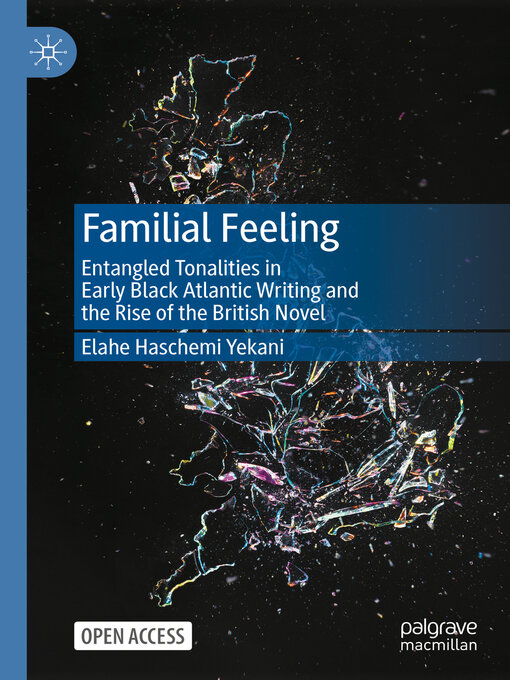This open access book discusses British literature as part of a network of global entangled modernities and shared aesthetic concerns, departing from the retrospective model of a postcolonial "writing back" to the centre. Accordingly, the narrative strategies in the texts of early Black Atlantic authors, like Equiano, Sancho, Wedderburn, and Seacole, and British canonical novelists, such as Defoe, Sterne, Austen, and Dickens, are framed as entangled tonalities. Via their engagement with discourses on slavery, abolition, and imperialism, these texts shaped an understanding of national belonging as a form of familial feeling. This study thus complicates the "rise of the novel" framework and British middle-class identity formation from a transnational perspective combining approaches in narrative studies with postcolonial and queer theory.

-
Creators
-
Publisher
-
Release date
December 7, 2020 -
Formats
-
Kindle Book
-
OverDrive Read
- ISBN: 9783030586416
-
Open EPUB ebook
- ISBN: 9783030586416
- File size: 4676 KB
-
-
Accessibility
-
Languages
- English
Formats
- Kindle Book
- OverDrive Read
- Open EPUB ebook
subjects
Languages
- English
Why is availability limited?
×Availability can change throughout the month based on the library's budget. You can still place a hold on the title, and your hold will be automatically filled as soon as the title is available again.
The Kindle Book format for this title is not supported on:
×Read-along ebook
×The OverDrive Read format of this ebook has professional narration that plays while you read in your browser. Learn more here.